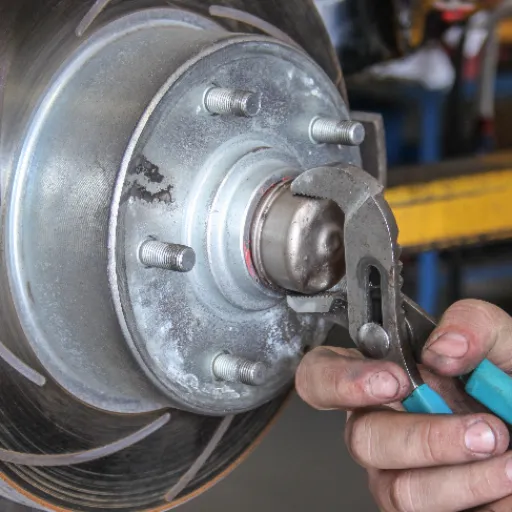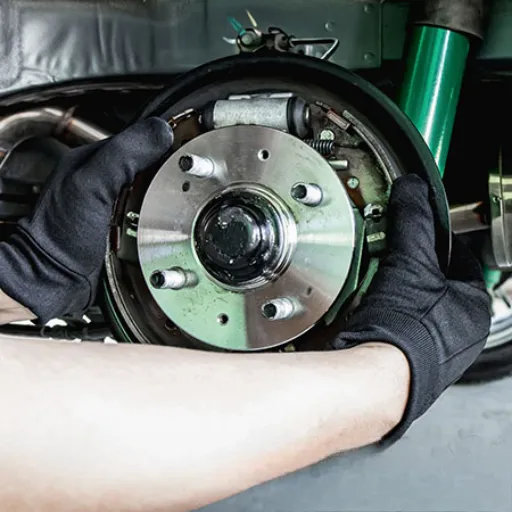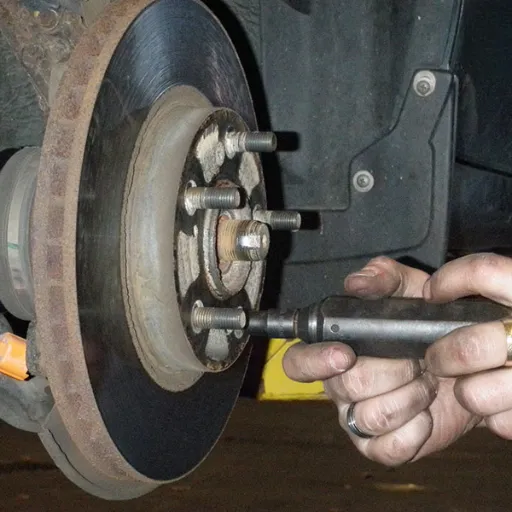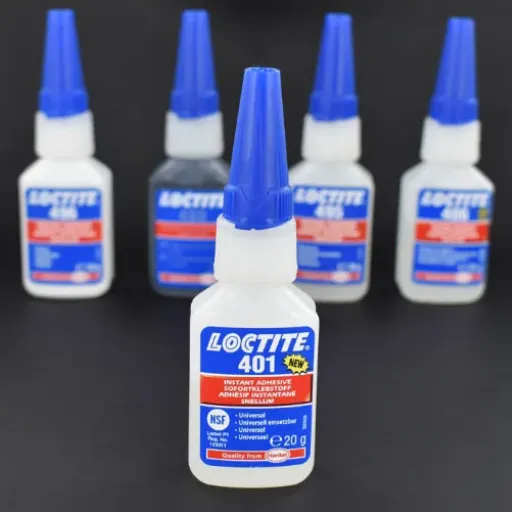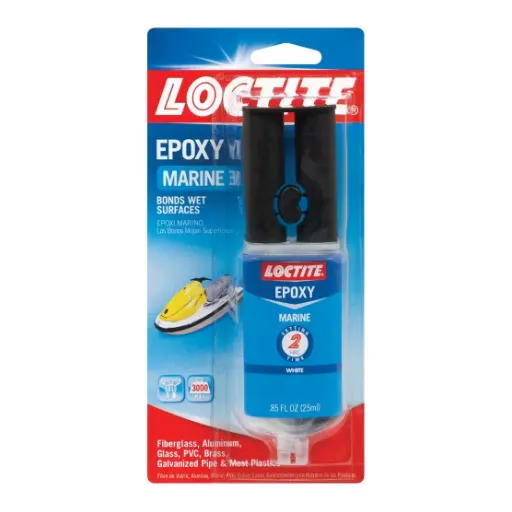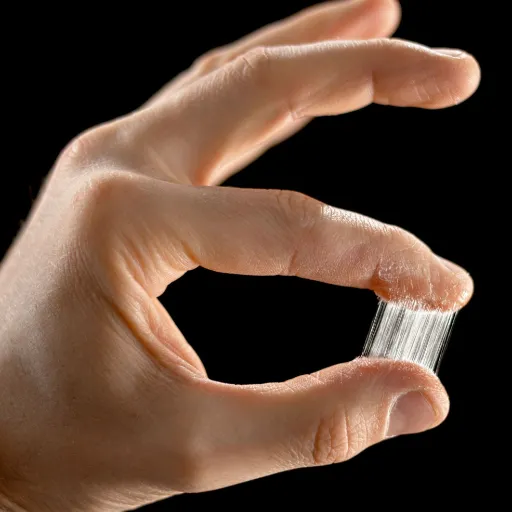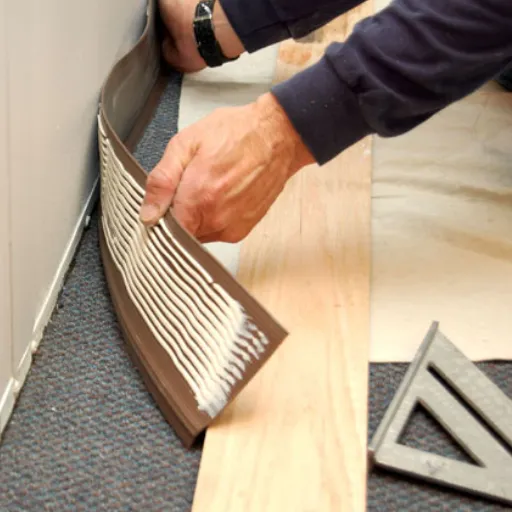Super glues are an integral part of day-to-day life, renowned for their exceptional adhesive power and versatility. Among the many types of glues, especially given its international status as one of the best glue brands, Loctite Glue remains the most recognized and trusted brand in the world of adhesives. So, what makes it so effective, and why has it gained such a strong reputation? In this article, we shall discuss in-depth everything one should know about Loctite Glue and super glues in general. Whether it’s for DIY projects, crafting, or odd jobs around the house, this guide will delve into how these strong adhesives work, their applications, and how to use them safely and effectively. It is going to be fun unearthing the secrets of this must-have!
What is Loctite Glue?
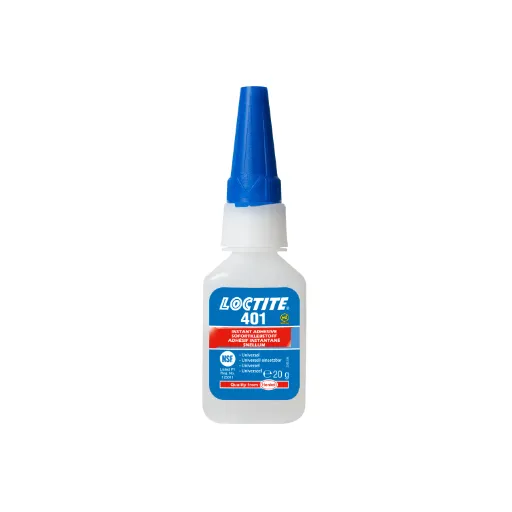
Loctite glue is an advanced adhesive designed to form strong, fast, and reliable bonds between a variety of surfaces and materials. Known for its durability and versatility, it is widely used in do-it-yourself projects, household repairs, and industrial applications. The glues manufactured by Loctite come in a variety of superglues, epoxies, and construction adhesives, each designed to carry out specific tasks or bond materials such as wood, metal, plastic, or ceramics. Both industrial users and ordinary people favor the glue due to its easy application method and guaranteed results.
Definition of Loctite and Its Products
Loctite adhesives are formulated from a range of products designed to meet the requirements of various applications, from DIY home improvement projects to large-scale industrial tasks. One of its super glues bonds fast and firmly, performing a stellar job in quick fixes around the house, such as for broken ceramics, plastic components, or small wooden items. Its epoxies are for more contaminated repairs, providing durable, permanent performance for automotive repair, metal bonding, and even heavier-duty applications. Loctite construction adhesive will securely attach larger materials, such as tiles, mirrors, and insulation panels. Loctite combines the latest advances in adhesive technology with straightforward application methods, ensuring reliability and versatility in various industrial and domestic settings.
Brief History of Loctite Innovations
Loctite was founded in 1956 by Dr. Vernon Krieble, an innovative chemistry professor who created an anaerobic adhesive that cures in the absence of air. Loctite products work by tightly binding nuts and bolts, a series of products that solve the age-old problem of loosening due to vibration. In the preceding century, Loctite has been at the forefront of adhesive developments, from super glues (cyanoacrylates) to two-part epoxies and structural adhesives that offer strength and versatility in bonding applications. Having joined the Henkel Group in 1997, the company has evolved into a truly global player, interacting with numerous industries where advanced adhesive technology is crucial, spanning from automotive to aerospace and construction. Their legacy of innovation reflects a founding premise of the establishment: to be problem-solving and dependably reliable.
Types of Loctite Glue
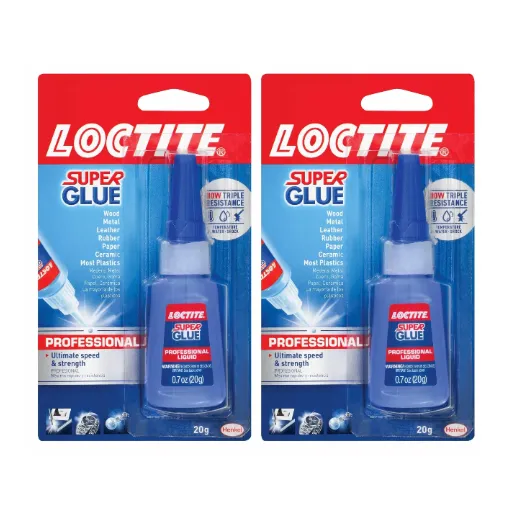
Adhesives offered by Loctite cater to various needs:
- Super Glue (Cyanoacrylate) – Useful for fast bonding on small surfaces. Works well on plastic, metal, wood, or ceramic.
- Epoxy Adhesives – These strong and durable adhesives serve for heavy-duty bonding and withstand adverse environments.
- Threadlockers – Secure bolts, nuts, and fasteners, preventing them from loosening due to vibration or shock.
- Structural Adhesives – For high-strength bonding in industrial applications like automobile or aerospace repair.
- Specialty Glues – For various fastening requirements, including glass repair, flexible materials, and heat resistance.
Each different type addresses different bonding requirements, always ensuring proper performance for multiple projects.
Super Glues
Being among the most recognizable names for superglue, Loctite bears a reputation for producing high-quality adhesives that, above all else, are reliable. Loctite super glue comprises cyanoacrylate adhesives suitable for quick bonding and versatile uses. It adheres to various materials, including metal, plastic, rubber, ceramic, and wood. Due to its fast-drying and strong bonding properties, it is widely preferred for both household and industrial applications. With numerous formulations targeting exact fixes, impact resistance, and durability, Loctite surely remains a premier brand among super glues.
Threadlockers
Threadlockers, including the Loctite brand, are specially formulated adhesives designed to secure threaded fasteners in position. Loctite threadlockers are applied extensively in sectors such as automotive, aerospace, and manufacturing to prevent loosening caused by vibration, shock, or thermal expansion. Unlike superglues, threadlockers are designed for metal-to-metal bonding, offering a sturdy yet removable bond. The threadlockers harden when away from air and in contact with metal, thereby providing a secure, long-term solution for bolted joints. Loctite brands offer several threadlockers with strengths varying from low to high, depending on the application’s requirements.
Construction Adhesives
Loctite is widely famous for adhesives, including construction adhesives. Loctite’s construction adhesives are used for various purposes, including bonding wood, metal, concrete, and other materials commonly found in construction projects. All these adhesives were formulated to offer robust and durable bonding that can resist harsh conditions, high temperatures, or even heavy loads. The versatility of Loctite construction adhesives, combined with their ease of application, makes them a favorite choice for both professional contractors and DIY enthusiasts.
Specialty Glues
Loctite is among the most notable names in specialty adhesives. Their extensive product range is meant for a variety of applications. The latest data from search engine trends indicates a steady increase in the number of searches for Loctite products, particularly those in the realms of construction, DIY repairs, and industrial use. This surge ebbs in tandem with the increased consumer demand for trustworthy adhesives that, on demand, perform high-functioning tasks. The versatile range offered by Loctite presents options for bonding metal, plastic, rubber, or even wood; hence, it is a name favored among professionals and hobbyists. Its reputation stands out for the one that praises glue-providing durability and ease of use, cementing its position as the first choice for specialty glues.
Common Uses of Loctite Glue
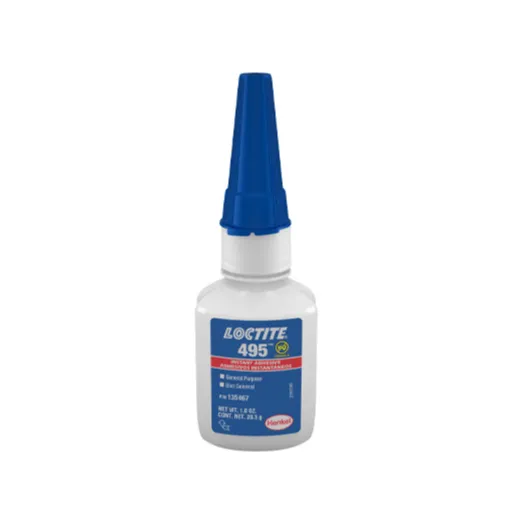
Due to its strength and versatility, Loctite glue has a wide range of applications. Some popular ones are:
🏠 Home Repairs
Great for fixing broken household items, whether they are ceramic, wood, or plastic.
🚗 Automotive Maintenance
Often used to seal, lock bolts, and make minor repairs to vehicle components.
🎨 DIY Projects
Ideal for crafts and assembling materials such as metal, glass, and fabric.
🏭 Industrial Applications
The glue finds use in manufacturing for gluing and sealing parts of machinery and equipment.
Loctite products excel in a wide range of applications, from everyday repairs to specialized uses.
Household Repairs
Household repairs require solutions that are both functional and durable. Typical questions asked are: “What is the best adhesive for fixing broken items at home?” Based on the new data, products like Loctite stand out in search interest due to their versatility and reliability. Users often recommend Loctite for repairing everyday items, such as ceramic mugs, wooden furniture, and even glassware. It is highly regarded for its strong adhesive quality and quick-drying nature, making it an all-around solution for a variety of household repair needs.
Crafting and DIY Projects
Frequently hailed as one of the most reputed glues for crafts and DIY by search engine data, Loctite glue enters the ring with other adhesives for various materials, including wood, metal, fabric, and plastic —that is, basically anything on which a crafter would like to apply a commercial adhesive. Fast-acting Loctite adhesives and their super-strong bonds are a real boon for small or detailed tasks where accuracy is crucial. Additionally, users appreciated the ease of working with Loctite and the durability of its results, which further enhanced its popularity in the DIY world. Whether you are making handmade gifts, repairing artwork, or assembling new items, Loctite glue proves to be a reliable partner.
Industrial Applications
Liquid adhesives render the most diverse service to industries; the recent search engine sorting trend reveals a higher interest in its use in professional settings. Loctite glue, due to its exceptional strength and durability, finds industrial applications in the automotive, aerospace, and electronics sectors where precise bonding is required. The variety of materials it bonds, including metals, plastics, and composites, makes it the choice for complicated assembly processes. This beauty performs in any adverse situation, whether it’s high heat or heavy vibrations, and thereby earns the reputation of a trusted industrial tool.
Construction and Renovation
Loctite glue holds great significance from a construction and renovation viewpoint because of its powerful bonding ability with other materials. Whether for fixing tiles, holding wooden structures in place, or sealing joints, Loctite stands for durability, resisting moisture, temperature variation, and heavy loads. It has a very short curing time and is easy to apply, making it ideal for jobs that demand both speed and strength. Additionally, there are specialized formulations of Loctite that cater to construction needs, making it even more helpful in general renovation work.
Safety Tips for Using Loctite Glue
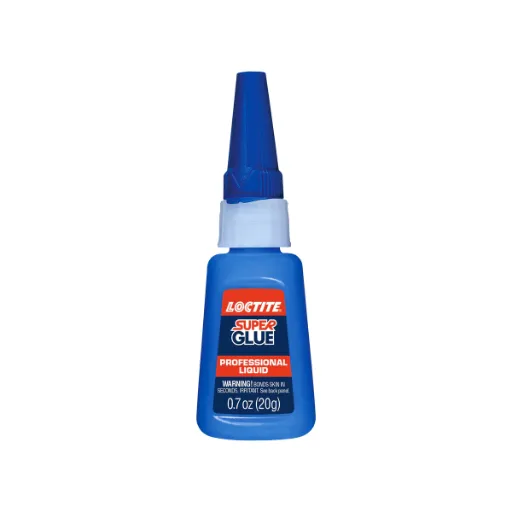
⚠️ IMPORTANT SAFETY GUIDELINES ⚠️
- Read the Instructions: Before applying Loctite glue, always read the label and safety instructions. This is to ensure the correct application and minimize risk.
- Work in a Well-Ventilated Area: If using the glue, ensure the area is well-ventilated to prevent inhaling glue fumes.
- Protect Your Skin and Eyes: Wear a pair of gloves if you’re handling the glue on raw surfaces, and also wear safety goggles.
- Avoid Contact with Heat or Flames: The glue should not be exposed to flames or heat-intensive environments, as it may ignite.
- Store Properly: Loctite glue in its original box. The container should be tightly sealed and stored in a cool, dry place, out of the reach of children.
- Dispose Responsibly: Dispose of excess glue and used containers in accordance with local regulations regarding the disposal of hazardous materials.
Protective Gear Recommendations
Most importantly, it is imperative to wear some amount of protective gear while working with Loctite glue or a similar adhesive in any other area. According to updated information and data, protective gear includes:
| Protective Gear | Description |
|---|---|
| 🧤 Gloves | Such gloves should resist chemicals for them to be effective; nitrile gloves are best, or latex when more comfortable from an allergic standpoint. |
| 🥽 Safety Goggles | Fit industrial safety goggles properly to protect your eyes against accidental splashes from fumes. |
| 😷 Respirator Mask | If working in a poorly ventilated area proves unavoidable, wear a mask to filter out harmful fumes. |
| 👕 Protective Clothing | Wear long-sleeved shirts and long pants to minimize skin exposure, especially when working with larger volumes of adhesive or for extended periods. |
Note: When practicing handling, these measures should practically eliminate all possibilities of accidents or health issues associated with adhesive work.
Ventilation and Storage Guidelines
I always ensure that I work in a well-ventilated environment to avoid exposure to fumes. I store adhesive materials in their original sealing containers, preferably in a cool, dry location that is protected from sunlight and heat. This ensures the adhesives remain effective and safe for use.
Materials to Avoid
Certain materials should be avoided while working with glues, as some can react negatively or decrease their effectiveness. Oily or greasy surfaces should never be combined with adhesives, as these prevent bonding from taking place. One should also avoid using dusty, dirty, or wet materials, as contaminants can interfere with the adsorption process. Some adhesives may even chemically react with plastics, rubber, or painted surfaces, resulting in undesirable outcomes. Always confirm with the glue manufacturer whether certain materials are incompatible to ensure maximum performance.
Why Choose Loctite Glue?
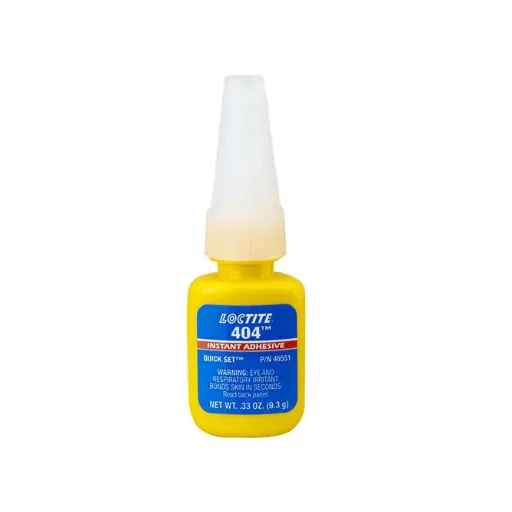
Considering all the ingredients of strength, reliability, and versatility, it comes as no surprise that Loctite Glue remains a trusted choice. This glue creates strong bonds with a wide array of materials, including metal, wood, plastic, and ceramic. Engineered to be esteemed in professional or day-to-day applications, Loctite Glue guarantees fast-drying action and everlasting outcomes. It is one of those glues for which application is straightforward and very precise, offering an easy choice for delicate projects or more heavy-duty repairs. With numerous cases of good performance behind it, Loctite is the one to trust when you need consistent results.
Strength and Durability of Bonds
Loctite Glue bonds are designed to meet the highest standards of strength and durability across various applications. Advanced adhesive technologies ensure that the adhesives resist environmental factors such as heat, moisture, and vibrations, allowing them to be used both indoors and outdoors. Both laboratory testing and user suitability indicate that strong bonds are maintained under stress, which is superior to that of many competitors. Heavy- or light-duty repair applications all demand reliability and longevity, and Loctite Glue will not fail you; hence, making it a favored adhesive worldwide.
Versatility Across Various Materials
Loctite Glue can bond just about everything, making it useful for a wide range of applications. Whether in industrial work or home projects, adhesives will bond materials such as wood, metal, plastic, ceramics, rubber, and certain fabrics. Having such a broad list of compatible materials means the user can perform a wide range of jobs with a single adhesive. It is these diverse abilities in their formula that allow them to meet the demands placed on them by modern repair and construction activities. Professionals and amateurs alike consider this quality of being highly adaptable to be one of the main reasons why Loctite Glue remains an ever-must-have.
Proven Performance and Achievements
Loctite Glue has consistently delivered excellent results, cementing the reputation of this trustworthy adhesive across various industries. Its reliability has been proven in testing and in application, standing up to the demands of repair or construction challenges. Continuous innovations from the brand have garnered various industry awards, while customer approval serves as the true testament to its effectiveness. Whether it’s industrial manufacturing or household repairs, the high-performance grade of Loctite Glue remains a reliable solution.
Reference Sources
Here are three professional and authoritative reference sources that you can use to verify the correctness of your article on “is Loctite glue”:
- “Mechanical Analysis and Optimization of Adhesive Solutions in Automotive Manufacturing: A Study on Loctite Adhesives”
This study, published by the University of Debrecen, explores the mechanical properties closely related to the performance evaluation of Loctite adhesives in automotive applications.
- “Exploring the Efficacy of Adhesives in Plastic Bonding: A Comprehensive Experimental Analysis with Emphasis on PVC-P Conservation”
The University of Gothenburg has published a study on Loctite super glue, trying to understand its effectiveness in forming bonds between plastics.
- “Use of Adhesives to Attach Devices to Invertebrates: Implications for Depredation by Ship Rats (Rattus rattus)”
The article, published in Tandfonline, examines the use of Loctite adhesive in field settings, providing information on its practical applications and limitations.
Frequently Asked Questions (FAQs)
❓ What is Loctite super glue?
Loctite super glue is a type of cyanoacrylate glue known for its strong bonding capabilities. It is designed to bond a variety of materials, including porous and non-porous surfaces, making it an ideal choice for quick repairs and invisible bonding. Available in various forms, such as liquid and gel, Loctite super glue caters to different applications and user preferences.
⚙️ How does Loctite glue work?
Loctite glue works by creating a chemical bond between surfaces when the adhesive is applied. The cyanoacrylate formula reacts with moisture in the air, setting quickly to form a strong, durable bond. This makes it effective for bonding materials like plastic, rubber, ceramic, and more, ensuring a lasting adhesion without the need for clamps.
🔧 What are the different types of Loctite super glue?
Loctite offers a range of super glues, including Loctite Super Glue Liquid, Loctite Super Glue Gel, and Loctite Super Glue Ultra Liquid Control. Each type has unique features, such as viscosity and applicator design, catering to various projects and user preferences. For instance, the gel formula is ideal for vertical surfaces, while the liquid form is suitable for close-fitting parts.
🧩 Is Loctite glue suitable for all materials?
Loctite glue is versatile and can bond a variety of materials. It works well on both porous and non-porous surfaces, including wood, metal, plastic, and ceramic. However, for optimal results, it is essential to select the appropriate type of glue for specific materials, as some formulations may perform better on certain substrates than others.
⏱️ How long does Loctite Super Glue take to set?
Loctite super glue is designed to set quickly, often within seconds to minutes, depending on the specific product used and the materials being bonded. The bond strength increases over time, making it a reliable option for both instant and long-lasting repairs. It is essential to allow sufficient curing time for optimal adhesion, particularly in heavy-duty applications.
🔧 Can Loctite glue be used for repairing rubber seals?
Yes, Loctite glue can be effectively used for repairing rubber seals. The strong bond formed by cyanoacrylate super glue provides long-lasting adhesion, making it suitable for sealing applications. When using it on rubber, ensure that the surfaces are clean and dry for optimal results.
📝 What is the best way to apply Loctite super glue?
The best way to apply Loctite super glue is to use the product’s applicator, which is designed to provide a precise and controlled application. It is essential to apply a small amount of glue to one surface, press the parts together, and hold them firmly for a few seconds. This ensures a strong bond without the risk of excess glue dripping or clogging the applicator.
🛡️ Is Loctite super glue safe to use?
Loctite super glue is generally safe for use when applied according to the manufacturer’s instructions. It is essential to avoid contact with the skin and to use it in a well-ventilated area. Some formulations may have specific safety guidelines, so always read the label for any precautions or recommended uses.







